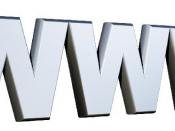"If a man is good in his heart, then he is an ethical member of any group in society. If he is bad in his heart, he is an unethical member" (Dr. Hess, 1955). Using ethics when making decisions can create many questions pertaining to your actions. This paper will look at some of those questions, and the influence ethics has on the decision making process.
The Influence of Ethics on Decision-Making
Ethics in decision-making poses many questions about how we want to act and how we should act, but according to what standards are these actions right or wrong? Many character traits, like honesty, compassion, and fairness, are necessary to influence your decision in every living situation (Schermerhorn, Hunt, and Osborn, 2003). To make morally correct decisions, you must first ask the right questions, and consider all the facts. Some of the important questions that could play a role in the ethical decision-making processes are: What concerns or issues do you usually minimize or ignore while making the decision, and why do you minimize or ignore them (Blosser, 1999)? What individuals or groups have an important stake in the outcome of your decision, and what is at stake for each individual or group (Blosser, 1999)? Do some of them have a greater stake because they have a special need or intrest, or do you have a special obligation to one or more of them (Blosser, 1999)? Are there other important stakeholders in addition to those directly involved (Blosser, 1999), and what are their stakes.
Finally, what are your options, and which options do you believe respects the rights and dignity of all the stakeholders concerned (Blosser, 1999)?
In making a morally correct decision, admitting your blindness enables the beginning of your vision, so lets get the relevant facts straight.


